History repeats itself with another Nakba
On Wednesday, May 15, Palestinians marked the 76th anniversary of their mass expulsion from their lands, now known as the occupied territories.This event known as the Nakba, Arabic for catastrophe, saw more than 750,000 Palestinians, the majority of the pre-war population, forced to flee or being driven from their homes before and during the 1948 Arab-Israeli war that followed the illegal establishment of Israel.
Following the war, Israel prevented their return so they became a sizable refugee community currently numbering around six million, with many residing in impoverished urban refugee camps in Lebanon, Syria, Jordan and the Israeli occupied West Bank.
In the Gaza Strip, these refugees and their descendants constitute about three quarters of the population.
While this year, Palestinians are experiencing conditions worse than the Nakba, but it seems that the real Nakba is going to haunt the Israeli regime in the years to come.
Should the regime prepare itself for the beginning of the end?
For a very long time, the Western world largely avoided engaging with the complexities arising from the occupation of Palestine. News about the occupation would briefly resurface every year or so, only to fade away quickly.
The situation was often deemed too complicated, leading many to remain neutral. Additionally, numerous individuals fell prey to negative stereotypes and misinformation about the Palestinian people.
However, the recent months of conflict have shattered this widespread apathy towards the plight of the Palestinians by revealing the scale and brutality of the situation.
Extensive media coverage has finally opened the eyes of many to the harsh realities endured by the people in Gaza and throughout Palestine for generations.
Following Israel's genocidal war on Gaza, local public opinion has taken an unexpected turn. Initially sympathy leaned towards Israel in response to Hamas' Al-Aqsa Storm operation.
However, Israel's actions in the territory have sparked significant controversy. Gaza, a residence for 2.1 million Palestinian civilians, half of whom are children, now lies in ruins.
Tragically, the war has claimed the lives of at least 37,000 civilians, predominantly women and children, with over 80,000 sustaining injuries.
Israel's actions in Gaza have sparked international condemnation from governments worldwide.
In a significant move, South Africa brought Israel before the International Court of Justice in December, accusing it of genocide in Gaza.
We as South Africans sense, see, hear and feel to our core that the inhumane discriminatory policies and practices of the Israeli regime as an even more extreme form of the apartheid that was institutionalized against black people in my country, coincidentally, from 1948 and which lasted until 1994.
Vusimuzi Madonsela, Ambasador of South Africa, Netherlands
Recent Gallup polls reveal a notable shift in American sentiment, with a majority, 55%, now disapproving of Israel's conduct in Gaza and only 36% approving of the wars handling.
A joint CBS News-YouGov poll indicates that a mere 33% of Americans approve of President Joe Biden's approach to the conflict.
These statistics mark a historical departure in American Israeli relations, traditionally considered one of the strongest bilateral relationships globally.
In the same vein, the Pew Research Center highlights a generational divide in American views showing adults aged 18 to 29 are more sympathetic towards the Palestinian cause than Israel's while 76% of adults aged 65 and over support Israel, 60% of young adults express more support for Palestinians. Additionally, 34% of young adults believe Hamas has valid reasons for fighting Israel compared to 30% who disagree.
The recent opposition to Israel extends beyond public opinion to include prominent figures. Even Connecticut Senator, Chris Murphy, has called for a halt to the military operations, emphasizing on February 29, that "the appalling scenes from Gaza City today and the staggering civilian death toll are not in Israel's, nor the United States’, interest and they necessitate an urgent change in course".
Israel's key allies expressed shock at the Israeli attack on civilian aid workers from the World Central Kitchen in April.
US Secretary of State Antony Blinken remarked "if we don't see the changes we need to see there will be a change in our policy."
Currently, student protests are sweeping the United States.
At Columbia, students are demanding the university end its investments in the tech giant's Amazon and Google, which have a $1.2 billion cloud computing contract with the regime in Tel Aviv.
At Yale, students are calling for the university to divest from all weapons manufacturing companies contributing to Israel's assault on Palestine. It's worth noting that Yale has exchange students with seven Israeli universities.
Harvard has programs with three of these universities while Columbia has relations with four of them
Youth protests against America's alliances with Israel may impact Biden's reelection chances in November.
It is time for America to reconsider its unconditional support for an alliance that is causing domestic harm.
So today is day 203 of genocide for Palestinians in Gaza, and nearly 75 years of colonial violence from the apartheid state of Israel and immense anguish for Palestinians everywhere.
If you are not focusing on the brutal genocide currently happening in Gaza, and the apartheid system Palestinians are living under in all of occupied Palestine, we implore you to do so.
It is important to remember why we are here, our encampment here at Columbia and encampments everywhere around the country are part of a larger movement for Palestinian Liberation.
Columbia Student 01
The growing awareness of human rights violations in Gaza, the West Bank and al-Quds has led to increasing public outrage in other Western countries.
In the UK, for example, the Labour Party, widely anticipated to lead the next government, has been instrumental in responding to the public's escalating calls to cease arms sales to Israel.
The party's stance reflects a broader shift in political discourse towards reevaluating international relationships and prioritizing human rights concerns in foreign policy decisions.
I think it's important for the Palestinian people to know that people do support them, that they're not just on their own, and also to be able to make noise so that governments actually listen because I think our government is slowly listening but it has taken quite a lot of these sorts of demonstrations really to make people realize and to keep to keep it in the forefront.
Protester 01
At the forefront of the opposition to Zionism is a new generation of Jews who are increasingly visible at these protests.
We are here today as Jewish Columbia and Barnard students who were arrested and suspended for peacefully protesting in support of Palestinian freedom on Thursday, April 18.
Hundreds of us have been holding a peaceful protest on the lawn since April 17.
As students at Columbia we have three demands: divest all finances, including the endowment from corporations that profit from Israeli Apartheid genocide and occupation in Palestine; two, provide financial transparency of all investments; and three, ensure amnesty for all students and faculty arrested, disciplined or fired in connection with the movement for Palestinian Liberation.
Jewish Pro-Palestine Student
The conflict in Gaza has sparked a profound internal debate within the Jewish community, with prominent figures such as Canadian journalist Naomi Klein asserting that "Zionism is a false idol that has taken the idea of the promised land and turned it into a deed of sale for a militaristic ethno" regime.
"From the start, it has produced an ugly kind of freedom that saw Palestinian children, not as human beings, but as demographic threats. "
The sentiment resonates with many Jews who are appalled by the actions carried out in their name and the distortion of their religion to justify ethnic cleansing.
As the 76th anniversary of the Nakba day unfolded, a starkly contrasting landscape greeted the Zionist regime.
No longer confined to mere cabinet collapses and internal coups, a web of crises now ensnares the regime's very existence.
Is its survival now hanging by a thread, and will the specter of the Nakba haunt not those who bore its pain, but those who are wrought its devastation?
VIDEO | Yemen; a bone in Israeli neck
D-8’s role in Iran’s economy after Cairo summit
China slams US as ‘war-addicted’ threat to global security
China ‘firmly opposes’ US military aid to Taiwan
VIDEO | Press TV's News Headlines
President Yoon Suk Yeol to be removed from office
At least 19 Gazans killed by Israeli airstrikes since dawn: Medics
Leader: Iran neither has nor needs proxy forces


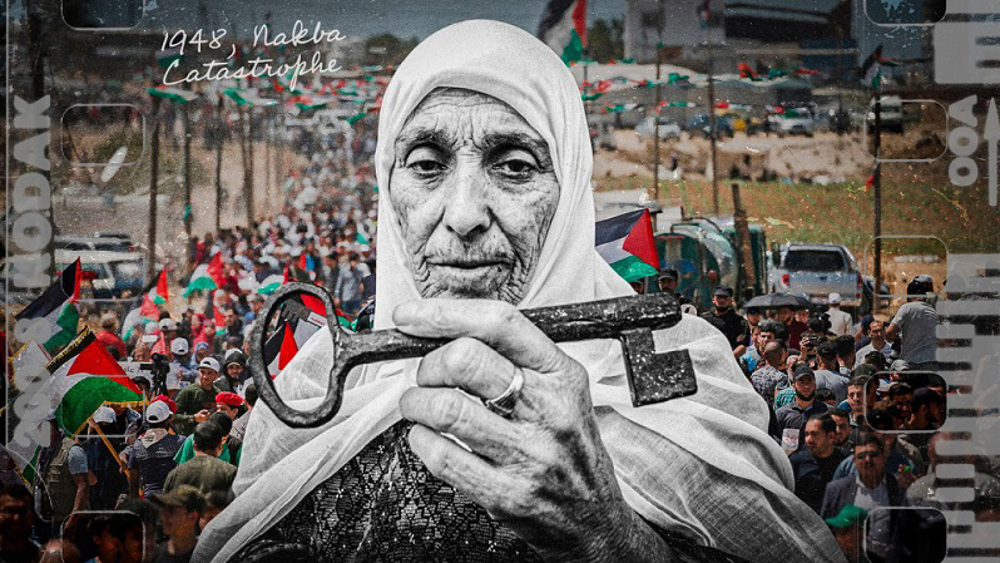
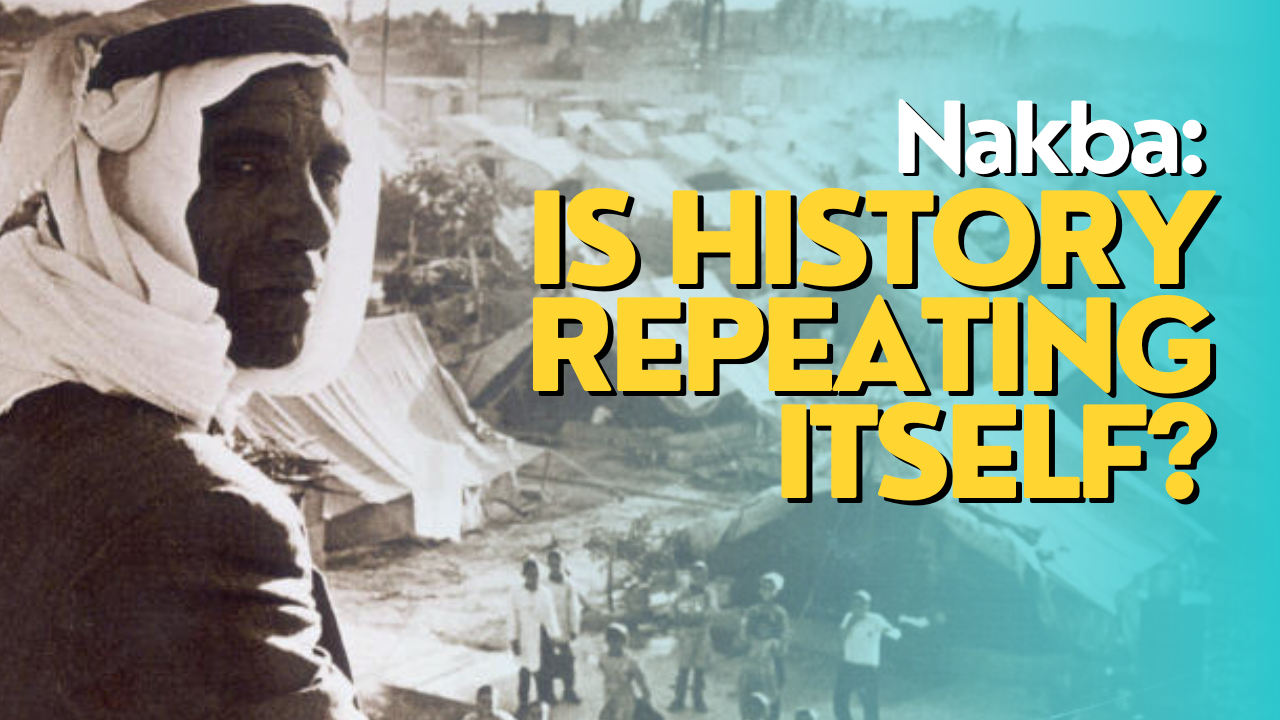
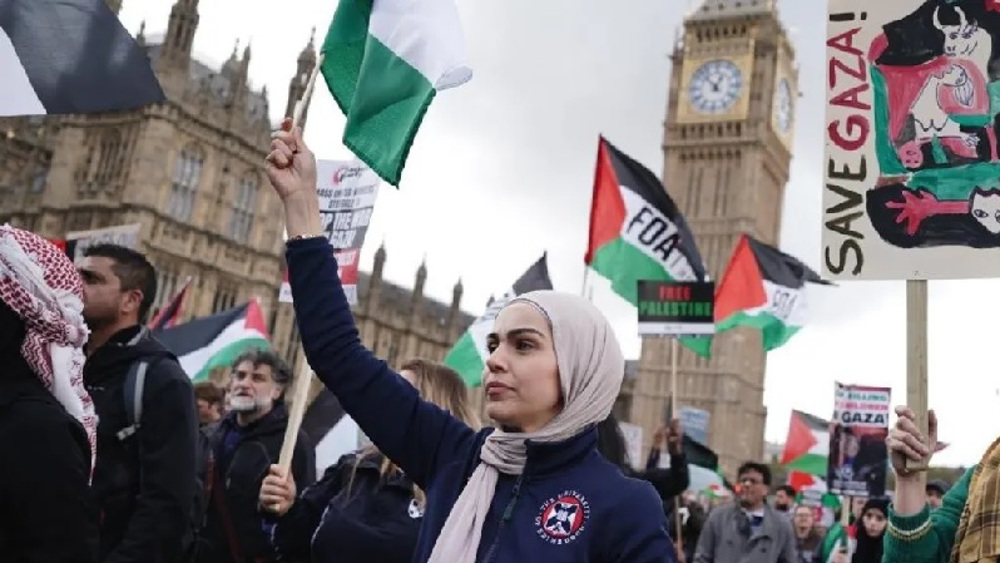
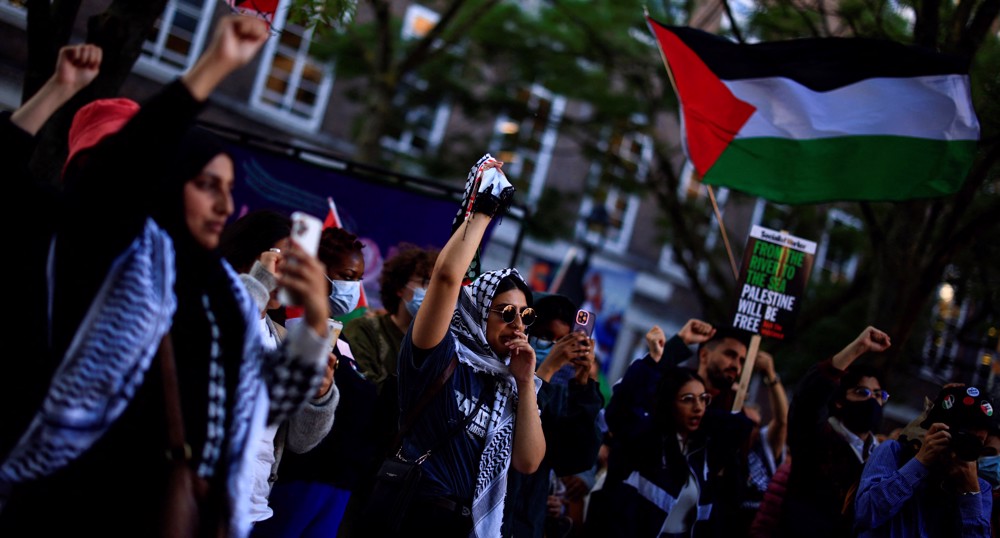
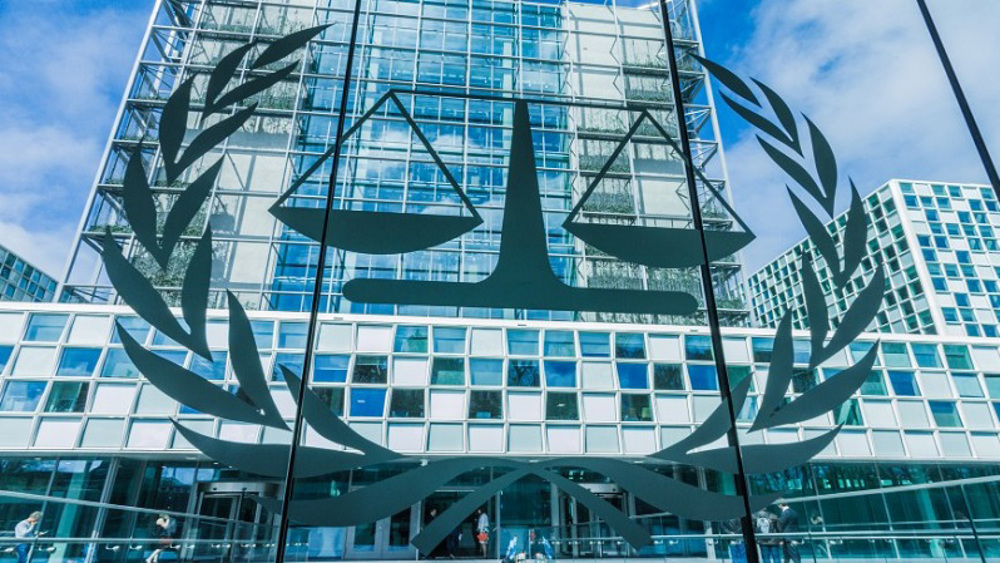
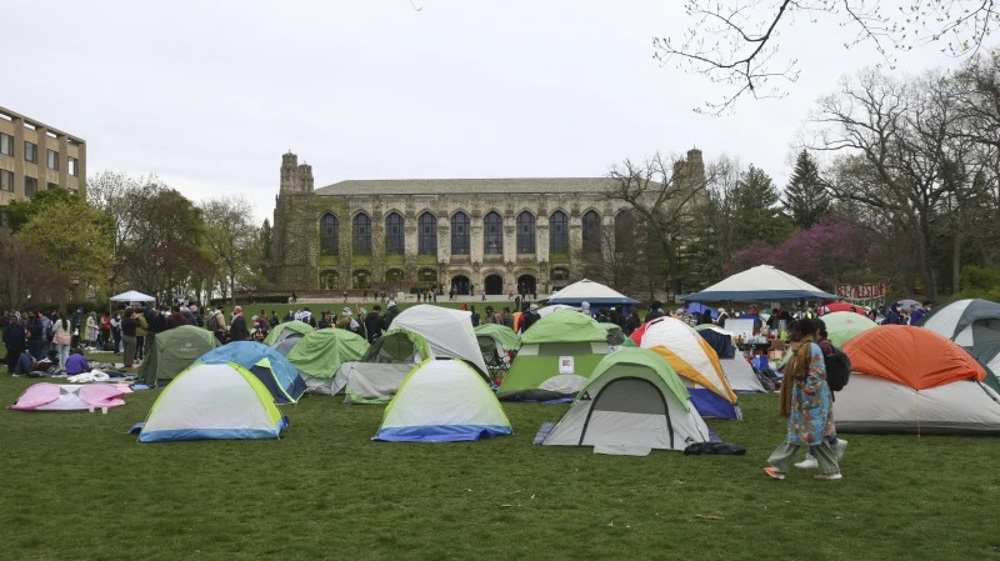
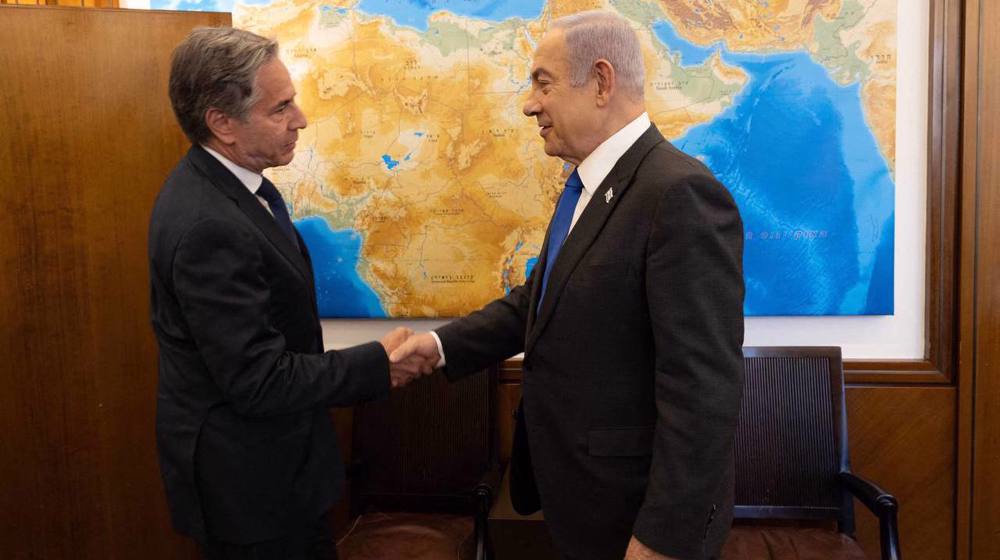
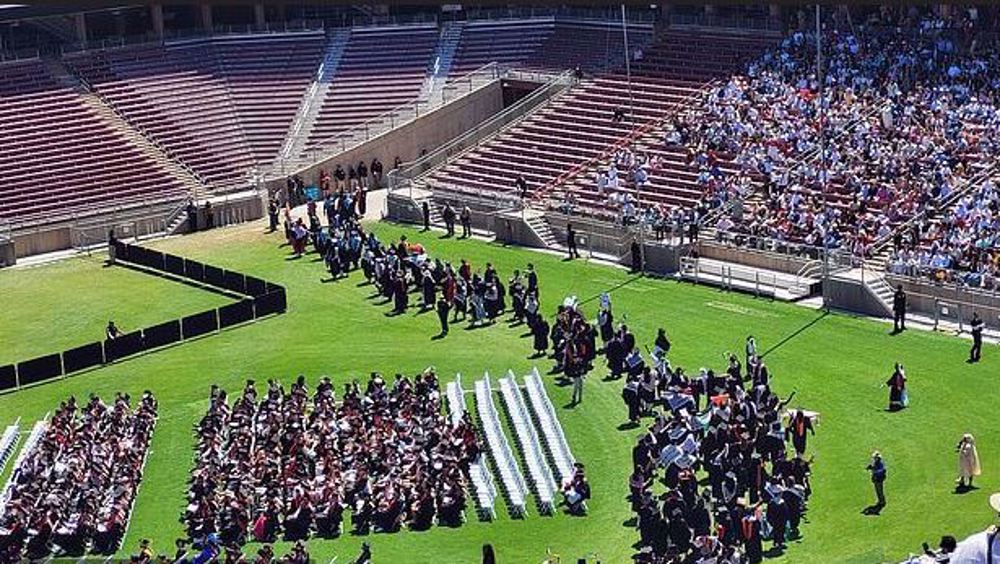
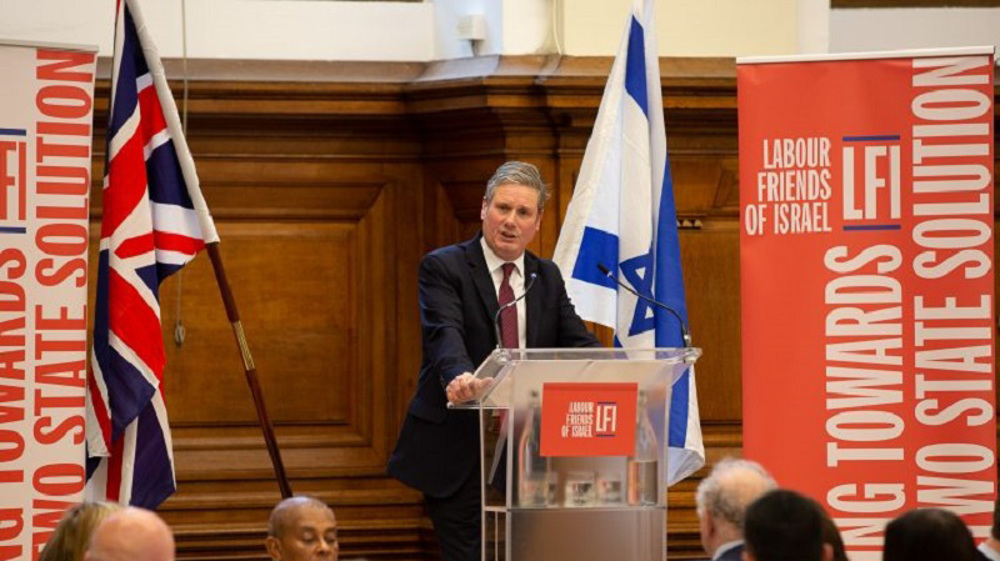
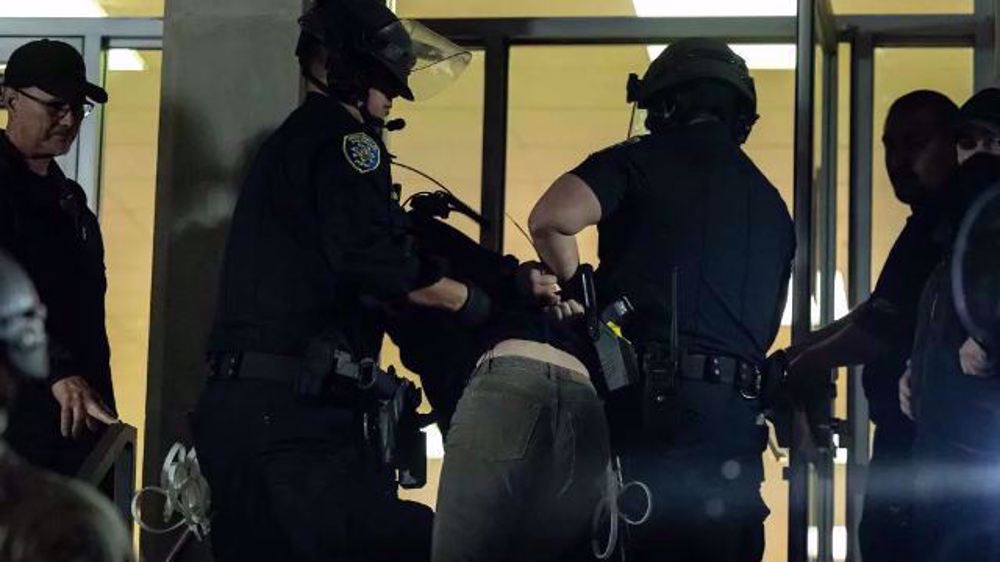
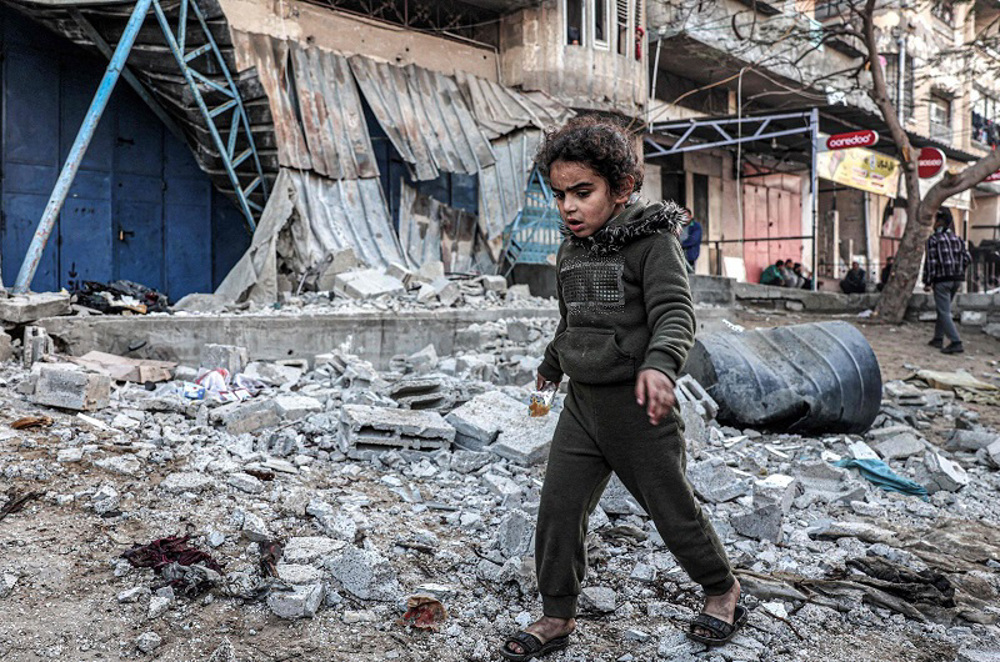
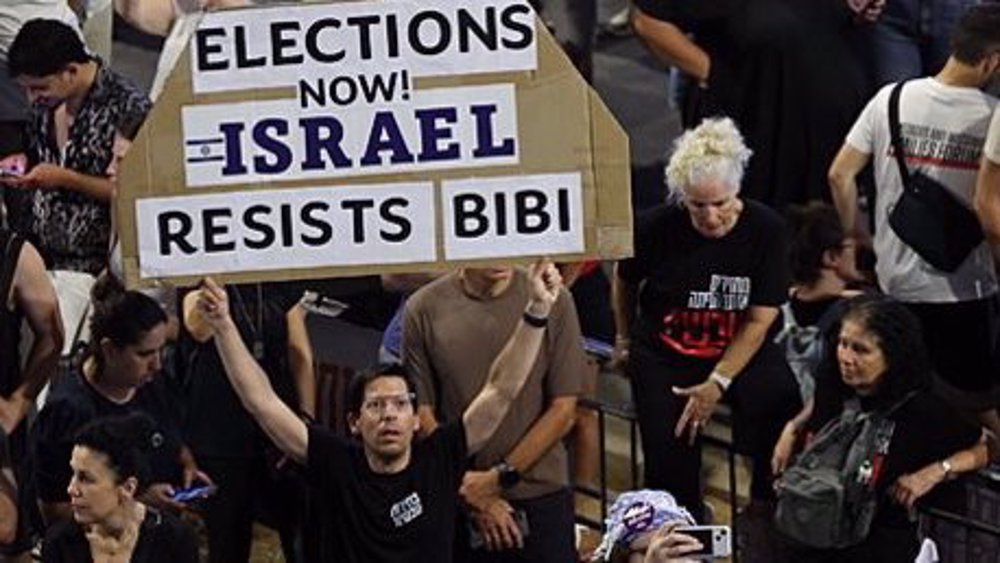
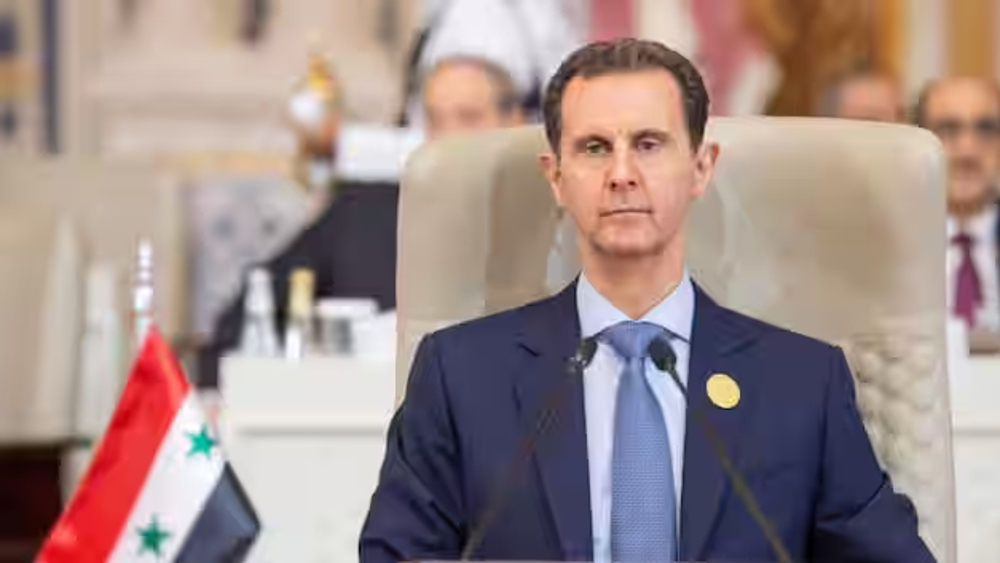

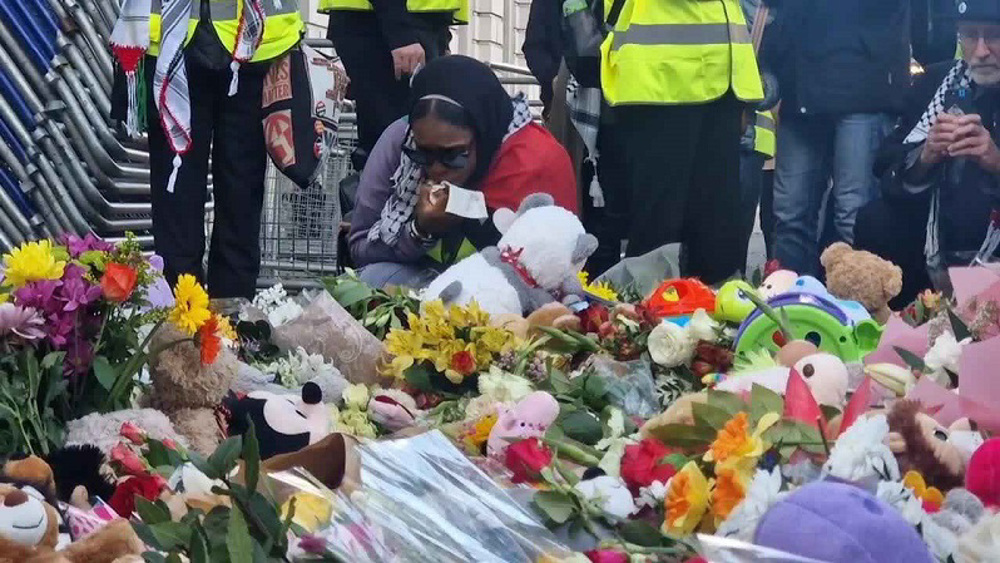



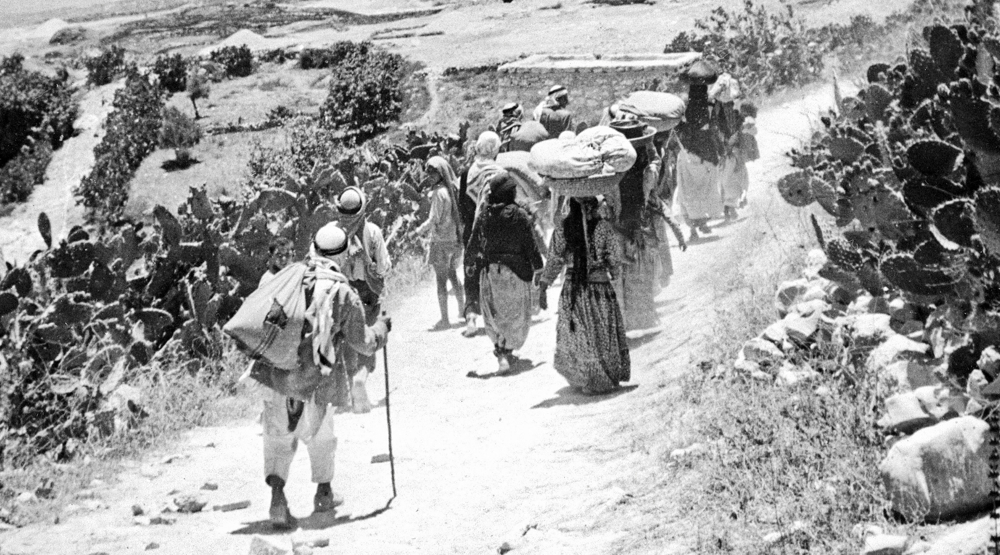
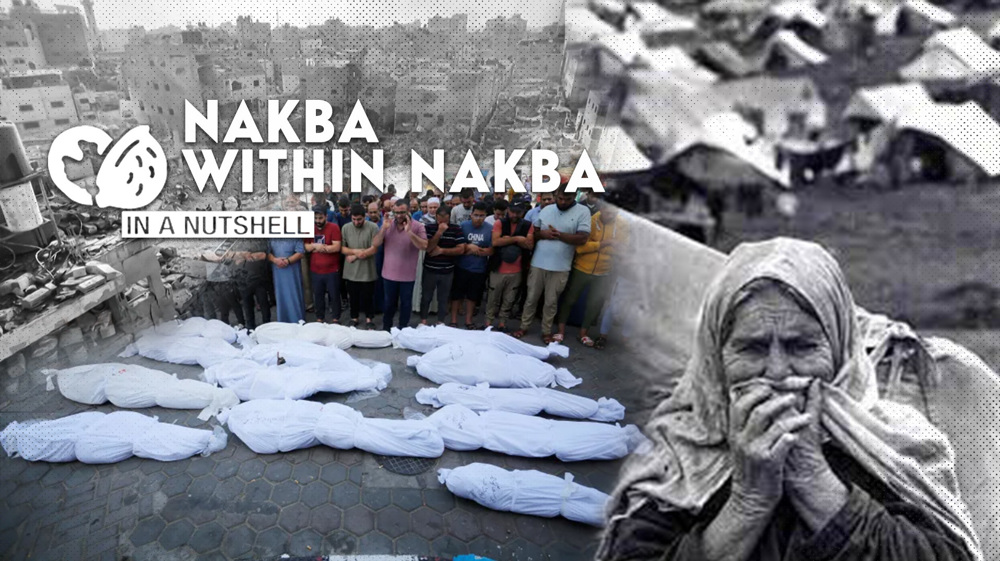
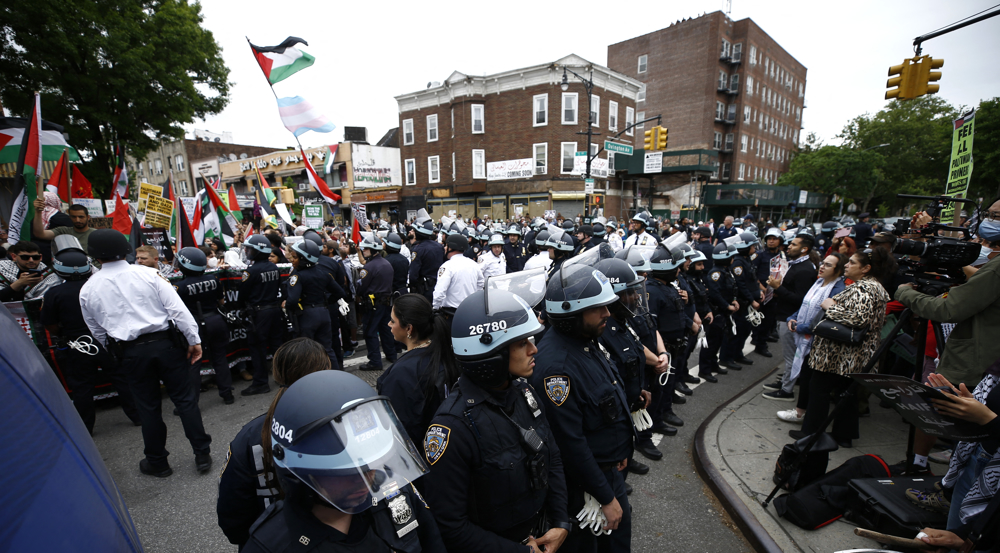
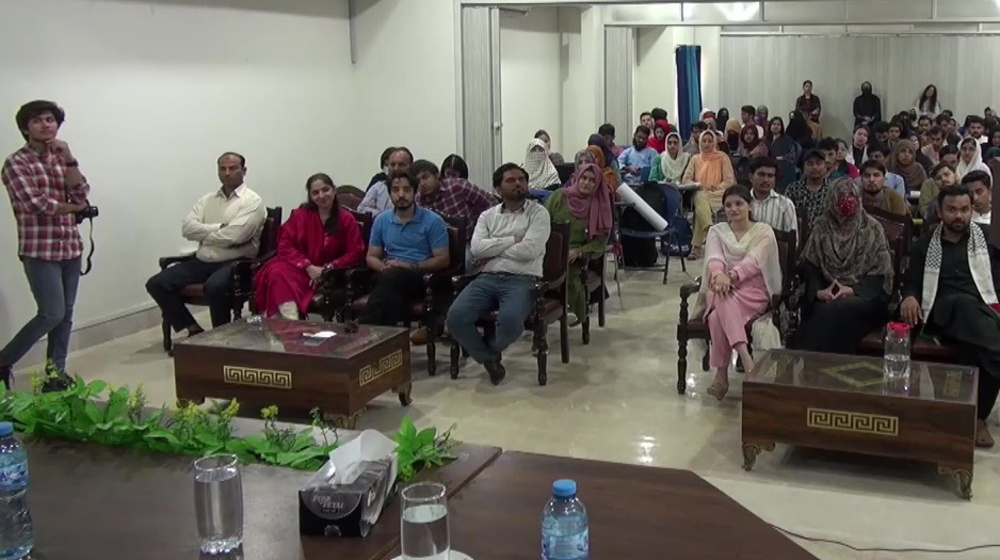
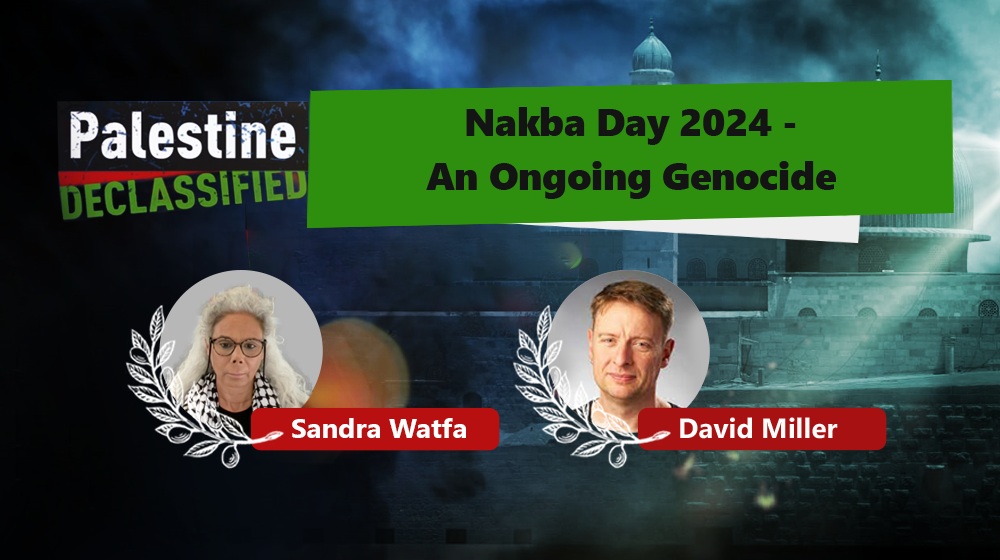
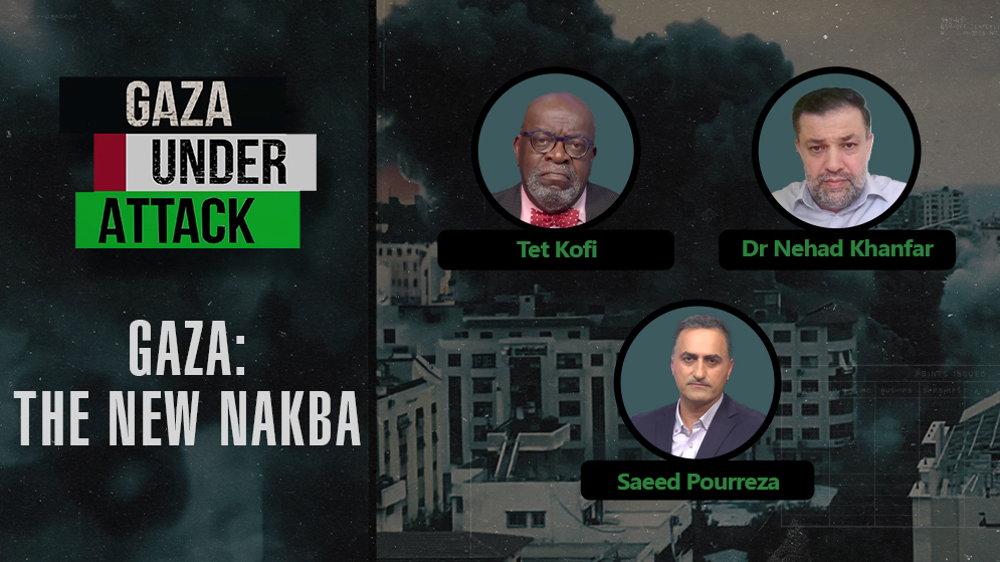
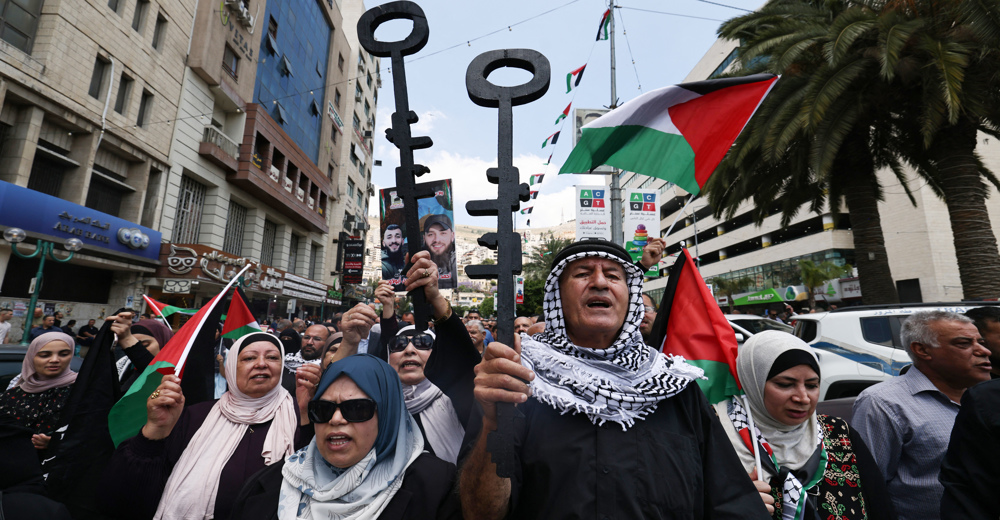

 This makes it easy to access the Press TV website
This makes it easy to access the Press TV website